How to Identify a Reliable HVAC Technician Near Me
Finding a dependable HVAC technician can feel overwhelming, especially when your system fails unexpectedly. However, with the right strategies, you can locate a reliable professional near you who will ensure that your heating, ventilation, and air conditioning systems are in excellent condition. Here are some effective ways to identify a trustworthy HVAC technician.
1. Start with Recommendations
The first step in your search is to gather recommendations from people you trust. Ask family, friends, and neighbors who have used HVAC services recently. Personal experiences can provide insight into the skill level, reliability, and cost of different technicians. You can also check out online community forums like Yelp or HomeAdvisor for additional suggestions and reviews.
2. Verify Credentials
Before hiring anyone, check their qualifications. A reliable HVAC technician should have the following credentials:
- Licensing: Ensure they are licensed to operate in your state.
- Insurance: Confirm they have liability insurance to protect you in case of accidents.
- Certifications: Look for technicians who are certified by recognized organizations, such as the EPA for refrigerants.
3. Read Reviews and Ratings
Online reviews can be a goldmine when searching for reliable HVAC technicians. Check Google Reviews, Facebook, and local company websites to read feedback from previous clients. Pay particular attention to:
- Overall ratings (aim for 4 stars and above).
- Detailed comments on work quality, professionalism, and responsiveness.
- Responses from the company to complaints, which indicate their customer service approach.
4. Look for Experience
Experience is a crucial factor when selecting an HVAC technician. Technicians who have been in the business for several years typically have encountered a variety of issues and developed strong problem-solving skills. Ask potential candidates how long they have been working in HVAC and inquire if they specialize in systems similar to yours.
5. Get Multiple Estimates
Don’t settle for the first technician you interview. Contact a few HVAC technicians and request estimates for your specific needs. A trustworthy technician will provide a clear and comprehensive quote that includes:
- Labor costs
- Parts and materials
- Estimated time to complete the work
Evaluate the estimates and be cautious of any prices that seem unusually low, as they may compromise quality.
6. Ask About Warranties
A dependable technician should stand behind their work. Ensure you ask about any warranties on parts and labor. A solid warranty indicates confidence in their services and gives you peace of mind for future issues.
7. Trust Your Instincts
Your gut feeling often tells you a lot about a technician. During your interactions, note how they communicate. Good technicians listen to your needs and concerns, provide honest answers, and maintain a professional demeanor. Don’t hesitate to walk away if something feels off.
8. Use Online Resources
Various online platforms can help in your search for HVAC technicians. Websites like Angie’s List and Better Business Bureau can provide valuable insights. You can also access local reviews, service ratings, and any reported complaints, which can aid in your decision-making process.
Finding a reliable HVAC technician involves thorough research and due diligence. By gathering recommendations, verifying credentials, and trusting your instincts, you can secure the best possible service for your HVAC needs. Remember that investing time in finding a trustworthy technician can save you money and provide a sense of comfort for your home.
Key Qualities to Look for in an HVAC Technician
When seeking a trustworthy HVAC technician, it’s essential to know what qualities to look for. Identifying the right technician can greatly impact the efficiency and longevity of your heating and cooling systems. Here are key qualities that signify reliability and competence in an HVAC technician:
Licensing and Certification
Always verify that the HVAC technician holds the necessary licenses and certifications required by your state or locality. This proves they have completed the requisite training and understand the legal and safety standards in the industry. Most qualified technicians will have certifications from recognized organizations, such as the Environmental Protection Agency (EPA) or the Air Conditioning Contractors of America (ACCA).
Experience and Expertise
Experience speaks volumes. A technician with several years of hands-on experience can troubleshoot complex HVAC issues more efficiently. Additionally, ask about their expertise in specific HVAC systems or brands, as this can be crucial for addressing your particular needs.
Reputation and Reviews
Checking online reviews and testimonials is a smart step in assessing the reputation of an HVAC technician. Look for feedback on their customer service, punctuality, and quality of work. Consider using platforms like Yelp or HomeAdvisor to find reputable contractors in your area.
Clear Communication
A reliable HVAC technician should communicate clearly about their findings, recommendations, and the scope of work needed. If they take the time to explain the problem and options, it shows their commitment to quality service and customer satisfaction.
Signs of Good Communication Include:
- Answering your questions thoroughly.
- Providing detailed estimates with no hidden fees.
- Updating you on progress if the job takes longer than expected.
Insurance and Warranty
Always check if the HVAC technician carries liability insurance. This not only protects you from potential liabilities during job execution but also reflects the technician’s professionalism. Additionally, inquire about warranties on parts and labor. A reliable technician typically offers a warranty on their work, which can give you peace of mind.
Pricing Transparency
While finding an affordable HVAC technician is important, it is vital not to compromise on quality for the price. A good technician will provide a transparent pricing structure before commencing work, allowing you to understand the costs involved. Be wary of estimates that seem too low; they might indicate subpar workmanship or hidden costs later.
Problem-Solving Skills
HVAC systems can sometimes present unexpected challenges. A dependable technician should possess strong problem-solving skills to address unique issues effectively. You can gauge this during initial consultations by discussing your HVAC concerns and observing how they approach potential solutions.
Continued Education
The HVAC industry continues to evolve with new technologies and regulations. Technicians who engage in ongoing education and training show a commitment to staying updated. Ask about their involvement in workshops, seminars, or certification renewals to ensure they are well-versed in the latest trends and practices.
Availability and Response Time
Consider the technician’s availability for emergencies or urgent repairs. A reliable HVAC technician should have a reasonable response time and be flexible to accommodate your schedule. Many homeowners prefer a technician who offers 24/7 service, especially during extreme weather conditions.
Trust Your Instincts
Sometimes, your gut feeling can lead you to a trustworthy HVAC technician. If you sense that the technician is genuinely interested in your needs and provides a service-oriented attitude, your instincts may lead you in the right direction.
Finding a reliable HVAC technician near you involves careful consideration of various factors, including licensing, experience, communication, and reputation. By equipping yourself with this knowledge, you can ensure a smoother and more efficient process when it comes to HVAC repairs or installations.
Understanding HVAC Certifications and Licenses
When searching for trustworthy HVAC technicians, understanding the various certifications and licenses they hold can significantly impact your results. Credentials assure you that the technician is qualified, knowledgeable, and complies with local laws. Knowing what these certifications mean can help you choose the right professional to meet your heating, ventilation, and air conditioning needs.
HVAC technicians can earn several types of certifications, each signifying different levels of expertise. The most common certifications include:
- EPA Certification: The Environmental Protection Agency (EPA) requires technicians to be certified in handling refrigerants. This certification ensures that they adhere to environmental regulations and can manage the chemicals involved in HVAC systems safely.
- NATE Certification: North American Technician Excellence (NATE) certification is recognized across North America. It shows that a technician has passed rigorous tests and has proven knowledge in various HVAC fields, including installation and service.
- HVAC Excellence Certification: This certification is for technicians who have demonstrated skill and knowledge through both exams and work experience. It covers areas such as residential heating and cooling, light commercial heating, and specific equipment.
- State Licensing: Many states require HVAC technicians to obtain a license. This ensures they have the necessary skills and knowledge specific to the local building codes and safety standards. Check your state’s requirements for HVAC licensing.
When looking for a reliable HVAC technician near you, verifying these credentials can help you feel more confident in your choice. Here are some practical steps for doing so:
- Research Online: Use search engines to look for HVAC technicians in your area. Many websites compile information on licensed professionals and their certifications. For comprehensive data, visit NATE’s official site for technician certifications.
- Check Reviews: Look for reviews and ratings on platforms like Yelp, Google Business, or Angie’s List. Customer feedback can provide insights into the technician’s reliability and level of service.
- Verify Credentials: Once you have a list of technicians, check their credentials. Look for EPA and NATE certifications on their website or ask them directly. Always ensure they have valid state licenses by checking with your state’s licensing board.
- Ask for References: A reliable technician should be willing to provide references from previous clients. Reaching out to these clients can give you a sense of the technician’s work ethic and quality.
- Inquire About Insurance: Make sure the technician has liability insurance. This protects you from any financial loss should accidents or damage occur while the work is being done.
Besides certifications, it’s essential to understand the experience level of the technician you choose. Skills and knowledge improve with time and exposure to various systems. Experienced technicians are likely to resolve issues more efficiently and effectively.
It’s also beneficial to be aware of the different standards and codes associated with HVAC work. Each municipality may have specific requirements that HVAC technicians must follow. Understanding these can help you identify whether the technician can comply with them, enhancing the safety and performance of the equipment they service.
Seeking out local HVAC associations can also provide valuable information. These organizations often maintain lists of certified technicians in your area. You can find information about local HVAC associations at the Air Conditioning Contractors of America (ACCA) website.
When hiring an HVAC technician, ask open-ended questions about their experience with your specific problem. A knowledgeable technician will gladly explain how they plan to diagnose and fix any issues. This conversation can help you gauge their expertise and give you confidence in their services.
Finding a reliable HVAC technician hinges on understanding certifications and licenses. By doing your research, verifying credentials, checking reviews, and ensuring they have the relevant experience, you can take the guesswork out of hiring the right professional.
To equip yourself with further knowledge about HVAC systems and the industry, you can visit sites like HVAC.com and HVACR School for more insightful content.
The Importance of Customer Reviews in Choosing an HVAC Service
Choosing a reliable HVAC service can feel overwhelming, especially with the myriad of options available. One of the best tools at your disposal is customer reviews. These reviews not only provide insight into the quality of service offered by HVAC technicians but also help in assessing their reliability and professionalism. Let’s explore why customer feedback is essential in making an informed decision.
Understanding Customer Feedback
Customer reviews can come from various sources, including websites, social media, and local business directories. They offer a glimpse into previous customers’ experiences, providing valuable information about a service provider. Here’s how they can guide your decision:
- Quality of Work: Reviews often discuss the quality of the HVAC installation or repair services. Positive feedback can indicate a thorough job, while negative comments can warn you of potential issues.
- Reliability: Many reviews might refer to the punctuality of the technicians. A pattern of complaints about lateness might indicate a service that doesn’t respect your time.
- Pricing Transparency: Look for insights regarding pricing. Reviews can reveal if a company offers fair quotes or engages in upselling tactics that lead to inflated bills.
- Customer Service: Good customer service is vital. Feedback about communication, approachability, and responsiveness can help you gauge how the company treats its clients.
Where to Find HVAC Customer Reviews
Selecting the right platform to read reviews is just as important as the reviews themselves. Some effective platforms include:
- Yelp – Known for its comprehensive and detailed reviews across various service industries.
- Google Business – Provides not only reviews but also maps and directions to the HVAC company.
- Angie’s List – A platform dedicated to finding service professionals rated by users.
Evaluating the Reviews
When sifting through customer reviews, consider the following points:
- Look for a Pattern: Is there a consistent mention of specific strengths or weaknesses? A few isolated negative reviews can be less significant than a pattern of complaints.
- Check the Timestamp: Ensure that the reviews you are reading are recent. Older reviews may not accurately reflect the current service standard of the HVAC company.
- Emerging Trends: Pay attention to the types of issues being highlighted. If multiple reviewers mention the same concern, it may be worth investigating further.
- Assess Balanced Feedback: Look for reviews that offer a balanced view. A review that only sings praises or exclusively complains may lack credibility.
The Role of Testimonials and Case Studies
Beyond just ratings and reviews, testimonials and case studies provide more depth to customer feedback. Companies may showcase success stories on their websites, highlighting complex problems they’ve solved. These are often backed by real experiences and can offer deeper insight into the service you can expect.
| Review Source | Advantages | Disadvantages |
|---|---|---|
| Yelp | Comprehensive reviews by local customers | Mixed ratings can lead to confusion |
| Angie’s List | Specialized in service reviews | Requires a membership for full access |
| Google Business | Easy to access with map integration | May contain spam reviews |
Final Thoughts on Customer Reviews
Customer reviews play a critical role in finding a reliable HVAC technician. They provide real perspectives from those who have used the service before. By using this feedback, you can make a more informed choice, potentially saving time, money, and stress.
The next time you need HVAC services, prioritize checking customer reviews. They will help guide you toward making the best choice for your heating and cooling needs.
Questions to Ask Potential HVAC Technicians
Finding a reliable HVAC technician is crucial, especially when your heating or cooling system isn’t functioning properly. It’s essential to ask the right questions to ensure you’re making the best choice. Here are some important questions you can ask potential HVAC technicians before hiring them.
What Certifications and Licenses Do You Hold?
It’s important to verify the credentials of the HVAC technician. Asking about their certifications and licenses can help you understand their level of expertise. Technicians should often hold certifications from recognized organizations such as:
- North American Technician Excellence (NATE)
- Environmental Protection Agency (EPA) Certification
- Local State Licensing
Having the right certifications can assure you that the technician is knowledgeable and trained to handle HVAC issues safely and effectively.
How Long Have You Been in Business?
Experience often translates to reliability in the HVAC industry. A technician with a substantial amount of experience is likely to have dealt with a wide range of issues and can provide better service. Choose a technician who has at least five years of experience in the field.
Can You Provide References?
Don’t hesitate to ask for references. A reputable technician will gladly provide contact information for past customers who can vouch for their services. Be sure to follow up with these references to ask about their experiences—this can give you valuable insights into the technician’s reliability and professionalism.
What Is Your Service Warranty?
A well-established HVAC technician should offer warranties on both the parts and labor involved in the repair or installation. It’s typical to see warranties lasting from one year to several seasons. Ask them to explain the terms of the warranty clearly so you know what to expect if issues arise after the service is completed.
How Do You Charge for Your Services?
Understanding the cost structure is essential. Some technicians charge a flat rate for specific services, while others charge hourly. Make sure to ask for a detailed quote that breaks down the various charges. This way, you can compare rates effectively and avoid surprises when it’s time to pay.
Do You Offer Emergency Services?
HVAC issues can happen at any time. Knowing whether a technician offers emergency services is crucial for urgent situations. Inquire about the availability of after-hours or weekend services and any additional charges that may apply for emergencies.
What Brands Do You Work With?
Different HVAC technicians may have experience with various brands. Asking this question can help you understand their expertise and if they are familiar with the specific system you have at home. If you have a particular system, ensure they have a history of working with that brand to avoid complications.
What Is Your Process for Installation and Repairs?
Understanding how a technician approaches installation or repair work is vital. Ask them to explain their process step-by-step. This not only gives you insight into their thoroughness but also allows you to gauge their professionalism and attention to detail.
Are You Insured?
Insurance is a protection for both you and the technician. A reputable HVAC technician should have liability insurance and worker’s compensation insurance. This will safeguard you in case of accidents or damage while working on your property.
What Ongoing Maintenance Do You Recommend?
Proper maintenance can extend the life of your HVAC system. Ask the technician for recommendations on maintenance services or schedules. They should provide insights on how often you should service your system and what tasks should be performed regularly.
Can You Help with Energy Efficiency Options?
Energy efficiency can save you money in the long run. Inquire if the technician can provide advice on energy-efficient HVAC systems or modifications. Certified technicians will often be knowledgeable about the latest technology and can help you find options that meet your needs and budget.
By asking these questions, you can ensure that the HVAC technician you choose is reliable, experienced, and equipped to handle your needs while providing quality service. For further resources, consider visiting Air Conditioning Contractors of America or North American Technician Excellence for additional support in finding a qualified technician.
Common HVAC Services and When to Schedule Them
Keeping your HVAC system in good working order is essential for comfort, efficiency, and air quality in your home. Knowing which services to schedule and when can help you maintain optimal performance. Here are some common HVAC services to consider, along with tips on when to schedule them.
Regular Maintenance Services
Regular maintenance is critical for extending the life of your HVAC system. Most manufacturers recommend annual checks. Here are the common services to include:
- Filter Replacement: Every 1-3 months, check and replace your filters to ensure air quality and system efficiency.
- System Cleaning: Schedule deep cleaning for both the furnace and air conditioner annually. Clean coils, blower components, and drain lines.
- Electrical Connections: At least once a year, have an HVAC technician inspect your electrical connections, tighten them, and check for issues.
- Thermostat Calibration: Regularly make sure your thermostat settings match your home’s temperature. Schedule an annual calibration to avoid heating or cooling discrepancies.
Seasonal Services
Different seasons require different services to prepare your HVAC system. Here’s a breakdown:
| Season | Recommended Service | When to Schedule |
|---|---|---|
| Spring | AC Tune-Up | Before the temperature rises |
| Summer | Insulation and Duct Check | During peak usage months |
| Fall | Heating System Check | Before the cold weather hits |
| Winter | Thermostat Check | At the beginning of the season |
Emergency Services
Sometimes, HVAC issues arise unexpectedly. Knowing when to call for emergency services can save you from significant discomfort or damage:
- Heating Failure: If your heating system stops working during extreme cold and leaves you in an unsafe situation, call for emergency help immediately.
- AC Breakdown: A malfunctioning air conditioning unit can create an uncomfortable environment during hot summer days. If your AC stops working, don’t hesitate to reach out for immediate assistance.
- Strange Noises or Smells: Unusual sounds or smells coming from your HVAC system may indicate a serious issue. If you suspect anything out of the ordinary, it’s best to have a technician investigate.
How Often Should You Schedule Services?
Frequency largely depends on how often you use your HVAC system, but here are general guidelines:
- Annual Check-Ups: Schedule at least one thorough maintenance check each year for both your heating and cooling systems.
- Quarterly Inspections: Depending on the system’s usage, consider having your system inspected every three months.
Selecting a Reliable HVAC Technician
Finding a trustworthy HVAC technician is essential. Look for these qualities:
- Licensing: Ensure the technician has the necessary licenses and insurance.
- Experience: Choose a technician with considerable experience in your system type.
- Reviews: Check online reviews and ratings to gauge previous customer satisfaction.
For more information on HVAC services, visit Energy Star for essential guides on efficiency, or explore HVAC.com for industry insights and technician directories.
By understanding these common services and their scheduling needs, you can keep your HVAC system running efficiently, ensuring comfort and quality air in your home. Regular maintenance is key to avoiding costly repairs and extending the lifespan of your system.
Tips for Maintaining Your HVAC System Between Professional Visits
Maintaining your HVAC system is crucial for optimal performance, energy efficiency, and longevity. Here are several practical tips to ensure your system runs smoothly between professional visits.
Regularly Change Your Air Filters
One of the simplest yet most effective ways to maintain your HVAC system is by regularly changing the air filters. Clogged or dirty filters restrict airflow, making your system work harder and reducing its lifespan. Here’s how you can manage this:
- Check your filters every month.
- Replace disposable filters every 1-3 months, depending on usage.
- Wash or clean reusable filters according to the manufacturer’s instructions.
Keep the Outdoor Unit Clean
Your HVAC system’s outdoor unit can accumulate debris like leaves, dirt, and grass clippings. Keeping it clean enhances airflow and efficiency. Follow these steps:
- Remove any debris around the unit, ensuring there’s at least two feet of clear space.
- Gently wash the fins of the unit with a garden hose.
- Avoid using a pressure washer, as it can damage delicate components.
Inspect Insulation and Ducts
Inspecting insulation and ducts can prevent energy loss and maintain air quality. Consider these tips:
- Check all visible ductwork for any signs of wear or leaks.
- Seal any visible gaps with duct tape or appropriate mastic sealants.
- Ensure that insulation around ducts is intact to maintain efficiency.
Utilize Programmable Thermostats
Using programmable thermostats can drastically improve your HVAC’s efficiency. Here’s how to make the most out of this feature:
- Set your thermostat to match your schedule: lower the temperature when you’re away and raise it when you’re home.
- Consider using smart thermostats that learn your preferences and adjust automatically.
Schedule Regular Maintenance Visits
Even with regular maintenance at home, having a professional inspect your system once or twice a year is essential. This ensures any underlying issues are found and fixed early.
- Best times for maintenance are typically in the spring and fall.
- Ask for a thorough inspection involving cleaning coils and checking ducts.
Monitor System Performance
Pay attention to unusual signs that may indicate problems with your HVAC system. Look out for the following:
- Increased energy bills without a change in usage.
- Inconsistent temperatures in your home.
- Unusual noises, like clanging or whistling.
Ensure Proper Ventilation
Good airflow is vital for maintaining your HVAC’s efficiency. Here are steps to enhance ventilation:
- Keep vents clear of furniture and other obstructions.
- Open windows periodically to improve indoor air quality, allowing fresh air to flow.
Understanding how to maintain your HVAC system can help you save money on energy bills and extend the lifespan of your unit. For more detailed advice or to schedule a professional inspection, visit AHRI or Energy.gov. They provide various resources to help you ensure your HVAC is in top shape.
Following these steps not only keeps your HVAC system running efficiently but also enhances the overall comfort of your living space. Make it a habit to routinely check these components, and consult with a professional when any significant concerns arise. Remember, a well-maintained HVAC system is a key to a comfortable and energy-efficient home.
Key Takeaway:
Finding a reliable HVAC technician near you is essential for maintaining a comfortable and healthy indoor environment. When tasked with this search, several key takeaways can help streamline the process and ensure you choose a seasoned professional.
First, identifying a reliable HVAC technician involves looking for a combination of crucial qualities. A trustworthy technician should have a solid reputation built on years of experience and relevant certifications. These credentials not only indicate that the technician knows their business but also signal compliance with local laws and safety standards. Therefore, never hesitate to inquire about certifications and licenses before hiring someone.
Customer reviews play a vital role in selecting an HVAC service provider. They provide valuable insights into the experiences of previous clients, including the technician’s reliability, work quality, and responsiveness. Reading through several customer experiences can help you gauge whether a particular technician is right for your needs, making this a critical step in your decision-making process.
Equipping yourself with the right questions is another fundamental aspect of finding a knowledgeable HVAC technician. Inquire about their experience in handling specific issues, warranty policies, and service charges. This will help you determine if you can trust them with your HVAC system.
Common HVAC services, such as routine maintenance, emergency repairs, and system installations, should be scheduled thoughtfully. Familiarizing yourself with these services ensures that you know when to call in the pros, maximizing your HVAC system’s efficiency and longevity.
Maintaining your HVAC system can significantly reduce the need for frequent professional visits. Simple tasks, such as regularly changing air filters and ensuring proper airflow, can keep your system running smoothly between professional check-ups.
By focusing on these aspects—identifying qualities, understanding certifications, considering customer feedback, and asking the right questions—you’ll be well-equipped to find a reliable HVAC technician near you. Making informed choices can lead to a dependable HVAC system and peace of mind for your home or business.
Conclusion
Finding a reliable HVAC technician near you is essential for maintaining a comfortable and safe indoor environment. By identifying key qualities such as experience, professionalism, and good communication skills, you can ensure that your HVAC system receives the best care. Understanding the significance of certifications and licenses helps you verify the credibility of potential technicians, providing peace of mind.
Customer reviews play a crucial role in your decision-making process, as they reflect the real experiences of past clients. It’s wise to ask potential HVAC technicians specific questions regarding their services, warranties, and customer service policies. This not only clarifies their qualifications but also gives you insight into their work ethic and reliability.
Being aware of common HVAC services and knowing when to schedule them can prevent unexpected breakdowns and extend the life of your system. Additionally, incorporating simple maintenance tips between professional visits ensures your HVAC unit runs efficiently, saving energy and costs.
Ultimately, investing time and effort into finding a dependable HVAC technician will lead to lasting comfort and satisfaction in your home. Remember, taking these steps not only secures technical expertise but also fosters a trustworthy relationship with a professional who understands your specific needs. Your home’s climate control shouldn’t be left to chance; choosing the right technician is a decision that pays dividends now and in the future.
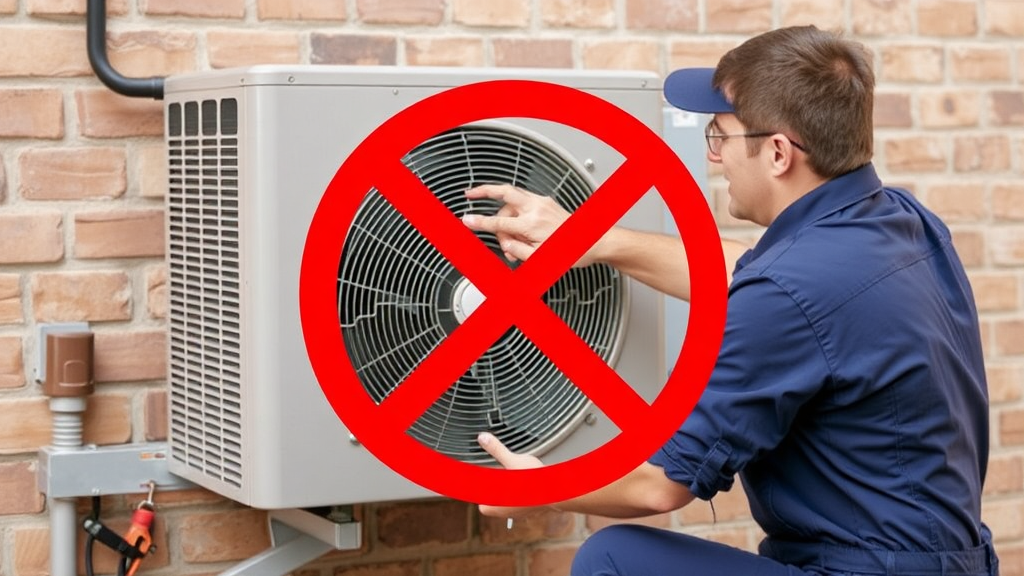
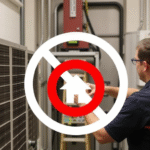
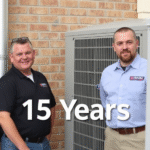
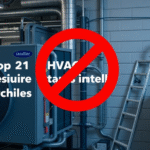
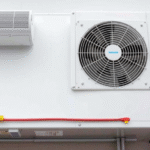
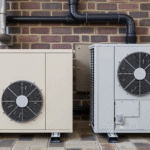
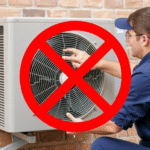
Leave a Reply